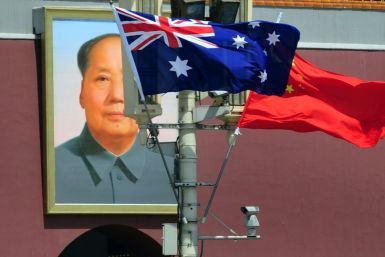World Market Overview 4/2/2011
US markets
U.S. stocks drifted just below the flatline Thursday as investors eyed encouraging earnings and stronger January sales among retailers, with a backdrop of continued unrest in Egypt. The Dow Jones Industrial Average was off six points at 12036 recently. Leading the Dow's decliners, Merck fell 2.8% after swinging to a fourth-quarter loss. While earnings and revenue topped Wall Street's expectations, the drug maker's forecast for full year adjusted earnings fell below analysts' predictions.
[Get this delivered to your inbox for FREE. Subscribe to our daily Markets Newsletter.]
The Nasdaq Composite edged down one point to 2748. The Standard & Poor's 500-stock index shed 0.1% to 1303, though gains in consumer discretionary stocks kept the losses in check. Retail stocks were the bright spot as January sales showed shoppers shrugged off snow, sleet and freezing rain, and a handful of earnings reports also boosted sentiment. AutoNation's fourth-quarter profit climbed 9.1%, topping analysts' estimates, as the automotive retail dealer reported higher sales of both new and used vehicles.
Shares rose nearly 11%. Limited Brands rose 6.2% after posting a 24% jump in same-store sales for January and raising its guidance for its quarter, which closes at the end of this month. The market's mood was subdued early as clashes between protesters and supporters of the Egyptian regime spilled over into violence, prompting the military to fire bursts of warning shots and reposition tanks to keep the two sides apart.
European markets
European stocks finished mixed Thursday after a volatile trading session, as disappointing earnings reports from oil giant Royal Dutch Shell and Spanish bank Santander soured sentiment. The Stoxx Europe 600 index gained 0.1% to close at 285, ending higher for a third session in a row. However, the Euro Stoxx 50 index fell 0.6% and most other European benchmarks ended lower. Equities in France, Spain and Italy posted particularly steep losses, led lower by the banking sector following disappointing results from Banco Santander. One of the biggest losers in Europe was Shell, which slumped 3% after it reported a 48% surge in adjusted profit to $4.1 billion that still fell short of market expectations. That weighed on the FTSE 100 index, which dropped 0.3% to 5,983.34. BP PLC and BG Group PLC fell 2.1% and 1.9%, respectively. France's CAC 40 index fell 0.7% to end at 4,036.59. Shares of telecommunications group Alcatel-Lucent retreated 2.8%, and banking giant Societe Generale SA dropped 3%. Germany's DAX 30 index gained 0.1% to 7,193.68. Deutsche Bank rose 1.5% after it released full fourth quarter results, which showed strength in equities sales and trading. In Spain, the IBEX 35 index fell 1.4% to 10,860.70. Italy's FTSE MIB index, meanwhile, declined 0.9%.
Asian markets
Asian markets ended mixed in light holiday trading Thursday, with Japanese stocks declining on worries over violence in Egypt and disappointing results from blue chips such as Panasonic Corp. Australian shares were led higher by insurance shares after a tropical cyclone caused less damage than feared.
The session was marked by caution in the wake of violent clashes between pro and anti-government demonstrators in Egypt, as well as sluggish overnight leads from Wall Street. Markets in China, Hong Kong, South Korea, Taiwan, Singapore, Malaysia, Indonesia and Vietnam were shut for the Lunar New Year holidays. Japan's Nikkei Stock Average fell 0.3%. Weak third-quarter earnings hit Panasonic Corp. and Ricoh Co. which fell 3.2% and 9.9%, respectively. Consumer lender Acom Co. also dropped 6.8% on sluggish third-quarter earnings.
Base metals
Base metals closed mostly lower on the London Metal Exchange Thursday, as an early complex-wide rise proved unsustainable amid weak physical demand from key consumer China. Copper, which reached a much anticipated record high of $10,000 a metric ton in morning European trade, closed the day down 0.2% at $9,930/ton. Tin also retreated after setting fresh highs earlier in the day, closing at $30,600/ton, down 0.2% on the day, after peaking at $30,920/ton. Thinly traded tin has benefited from supply constraints in key production areas and strong demand from the electronics industry. Crude futures turned lower Thursday as the U.S. dollar rallied, but traders remained focused on escalating violence in Egypt and the prospect of supply disruptions. Light, sweet crude for March delivery settled 32 cents lower at $90.54 a barrel on the New York Mercantile Exchange. Oil prices headed into negative territory after the U.S. dollar climbed on data showing higher service sector activity last month. Gold futures jumped to their strongest price in two weeks as Federal Reserve Chairman Ben Bernanke pointed toward continued easy money policy. The most actively traded gold contract, for April delivery, rose $20.90, or 1.6%, to its strongest settlement since Jan. 19 $1,353 a troy ounce on the Comex division of the New York Mercantile Exchange. Nearby February gold also closed at two-week highs, rising $20.80 to $1,352.30.
[Get this delivered to your inbox for FREE. Subscribe to our daily Markets Newsletter.]






